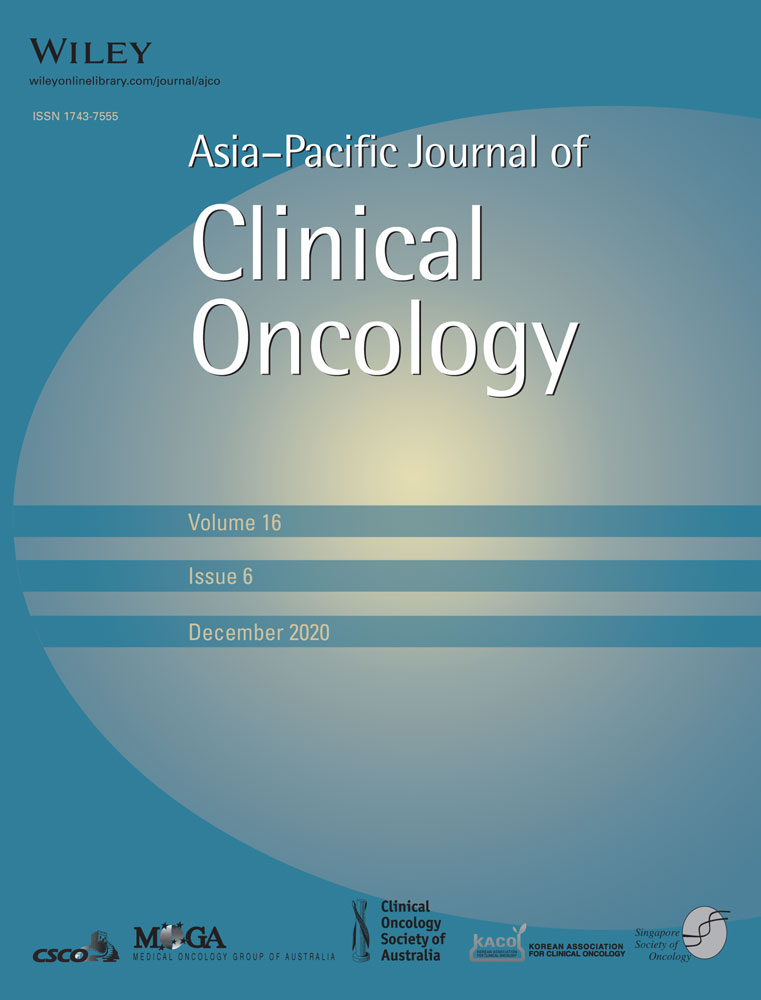Validity and reliability of the MD Anderson dysphagia inventory in English and Chinese in head and neck cancer patients
Abstract
Aims
Patient-reported outcome measures are important in assessing the impact of dysphagia on quality of life. Our aim was to adapt and examine the cultural validity and reliability of a swallowing-related quality of life measure, the MD Anderson Dysphagia Inventory (MDADI), in English and Chinese, with head and neck cancer patients.
Methods
We adapted the MDADI to Chinese through formal forward-backward translation. Sixty-six head and neck cancer survivors completed the MDADI, Swallowing Quality of Life (SWAL-QOL) questionnaire and Hospital Anxiety and Depression Scale (HADS) in English or Chinese. Swallowing status was scored on the Functional Oral Intake Scale (FOIS). Seventy-four percent (n = 49) of participants completed a repeat administration of the MDADI for test–retest reliability analysis.
Results
The MDADI showed high internal consistency reliability (Cronbach's α , 0.82 ≤ α ≤ 0.94), and test–retest reliability in both English (intraclass correlation coefficient, ICC = 0.81) and Chinese (ICC = 0.72). Criterion validity was established through moderate to strong correlations with relevant SWAL-QOL domains. Convergent validity was determined by significant correlations to the HADS and FOIS. Divergent validity was determined by nonsignificant association to the SWAL-QOL Sleep domain. The MDADI also presented as hypothesised to most known-group theoretical constructs.
Conclusions
The MDADI showed good psychometric properties in English and Chinese. This avails a reliable and psychometrically valid MDADI for Chinese speakers.
CONFLICTS OF INTEREST
The authors have no conflicts of interest.




